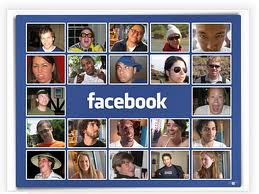
New research shows that two-thirds of online American adults are Facebook users, making it the dominant social networking site in this country, above Twitter and LinkedIn. But new findings from the Pew Research Center’s Internet & American Life Project reveal some interesting insights about the Facebook population, including the fact that 61% of current Facebook users say that at one time or another in the past they have voluntarily taken a break from using Facebook for several weeks or more.
The study asked Facebook users who have taken a break from using the site to explain in their own words why they did so, and they mentioned a variety of reasons:
- 21% - Too busy with other demands and not having time to spend on the site
- 10% - A general lack of interest in the site
- 10% - An absence of compelling content
- 9% - Excessive gossip or “drama” from their friends
- 8% - Concerns that they were spending too much time on the site and needed to take a break
- 4% - Privacy and security concerns
The study also showed that Facebook users generally get more than they give from their interactions with the site:
- 63% of Facebook users received at least one friend request, while 40% made a friend request
- Users in the sample had their content “liked” an average of 20 times, but pressed the “like” button next to friends’ content an average of 14 times
- Users received 12 personal messages but sent 9 personal messages
- 35% of Facebook users were tagged by others in a photo, but only 12% of users themselves tagged another person
“The explanation for this pattern is fascinating for a couple of reasons,” said Professor Keith Hampton, a researcher at the Pew Center. “First, it turns out there are segments of Facebook power users who contribute much more content than the typical user."
Most Facebook users are moderately active over a one-month period, so highly active power users skew the average.
“Second, these power users constitute about 20% to 30% of Facebook users," says Hampton. "But the striking thing is that there are different power users depending on the activity in question. One group of power users dominates ‘friending’ activity. Another dominates ‘liking’ activity. And yet another dominates photo tagging.”
The Pew study of 1,006 U.S. adults was conducted in December. It has a margin of error of 3.6 percentage points.
The whole idea of spending time on Facebook, or any social media site for that matter, is that there has to be content that's relevant or important to you. If not, it can feel like a waste of time. But if there is something that you are interested in, you will gladly offer up your email address or other information to get access to it.
This “give to get” mentality is also useful for social marketing.
Inbound marketing — providing exceptional content through blogs and other online formats — can help you reach out to a larger community by attracting and nurturing an audience for your information. Using this approach, you gently pull in the media and other prospects like a magnet. We have found that inbound marketing tactics are much more cost effective than traditional outbound marketing methods, such as cold-calling, email blasts, advertising and direct mail. People are getting better at blocking these types of interruptions. As a result, companies that focus on inbound tactics have a 62% lower cost per lead than companies that focus on outbound tactics.
Here at McNeill Communications, we use a combination of blogging, SEO and content marketing to bring people to your website. Content marketing includes publishing relevant content to your website as well as social media sites like Twitter, LinkedIn and Facebook.
When it comes to using Facebook, we’ve found that there are pluses and minuses. Sometimes we learn valuable information and feel energized after spending time on the site. But at other times, it can seem like a huge time drain, keeping us from other, more important tasks. Are you one of the Facebook users who has opted to take a break from time-to-time? If so, we’d love to know why.

